It might not be possible to prove the local legend that American Barbecue was invented in South Carolina, but the tradition of smoking meat and serving it up with delicious sides is as old as the state itself, and classics like Bessinger’s and Melvin’s have been serving local diners since the 1930s, along with Duke’s (open since the 1950s). Thanks for the BBQ renaissance in the past ten years, there are a host of popular new Lowcountry barbecue restaurants well worth the queue: Rodney Scott’s, Lewis, Home Team, Swig and Swine, and Poogan’s Smokehouse.
The History of Going Whole Hog:
In South Carolina, barbeque is slow smoked with hickory wood or oak coals. Pitmasters barbecue a whole hog or side of beef smoked in an open, excavated pit. Director of the Southern Foodways Alliance John T. Edge notes that “barbecue is our great American folk food.” Enslaved African Americans, white settlers, and the Native Americans that predated them both all made smoked meats or fish. The Spanish also had a “barbacoa” tradition of pit cooking meats. Edge says, “the American South is certainly the heartland of barbecue in America and yet there are so many expatriate Southerners who are now cooking with wood and cooking well across the country. There are other cultures, other peoples who cook something we might recognize as barbecue: jerk chicken from Jamaica or other culturally inspired forms. This is a food where much of the expertise resides with African-American cooks. The old pit masters of the South carry on large and proud traditions.”
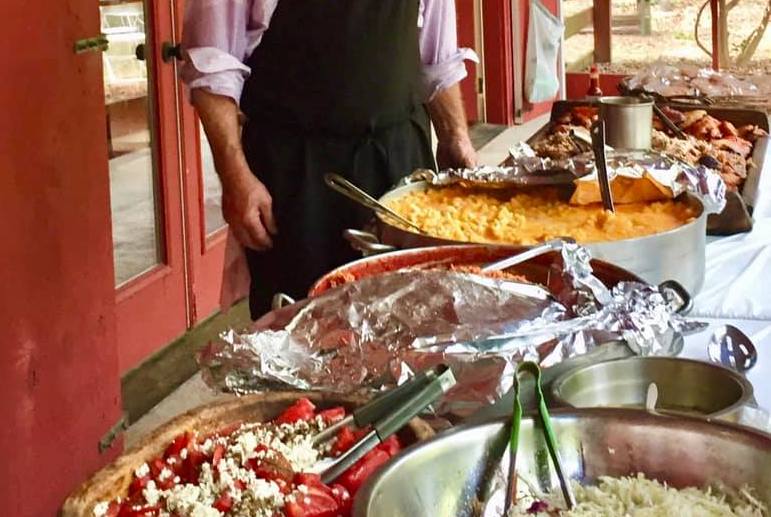
Earlier references to barbeque are for outdoor social events (what me might call a picnic after a horse race, political campaign speech, or after a church service, at which a meat dish was probably the main course) and don’t usually include a menu. A 1773 letter from Charlestonian William Richardson to his wife describing a barbecue he attended in Camden gives a rare bit of early detail: “us in the midst of a new ploughed field, a quarter of beef barbecuing . . . enter two hogs and the beef . . . smoked fired, a dish of bacon and turnip tops, plenty of brown loaves.”
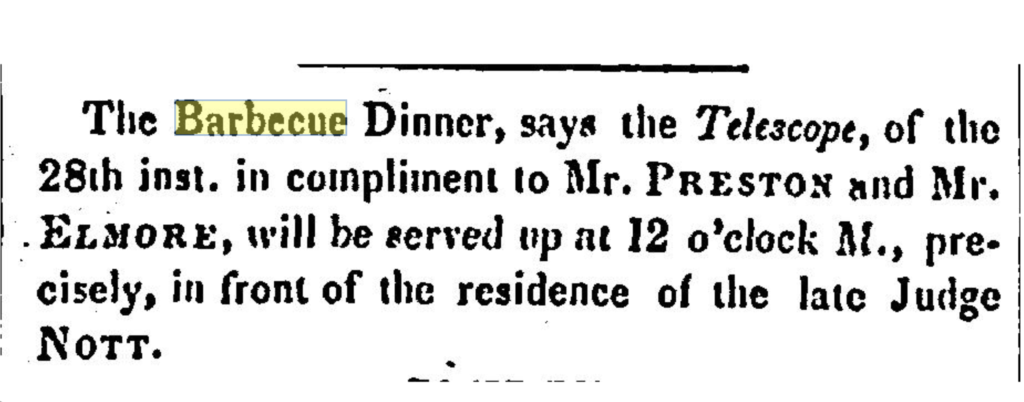
Historian Robert Moss explains that because Lowcountry culture was dominated by wealthy rice planters emulating the English, banquets and balls were more common than barbeque, with wild game, rice dishes, rich desserts, and fancy punch. White South Carolinians were cooking some of the staples of a barbecue meal in the mid nineteenth century; Sarah Rutledge’s 1847 cookbook includes several varieties of cornbread named for the plantations or areas the recipes came from (Awendaw, Chicora, Accabee), an oyster and beef sausage recipe and one for baked blackened fish, and even a ‘maccaroni a la sauce blanche’ (mac and cheese.) Poems from the era mention smoked pork flavored with mustard and cayenne pepper.
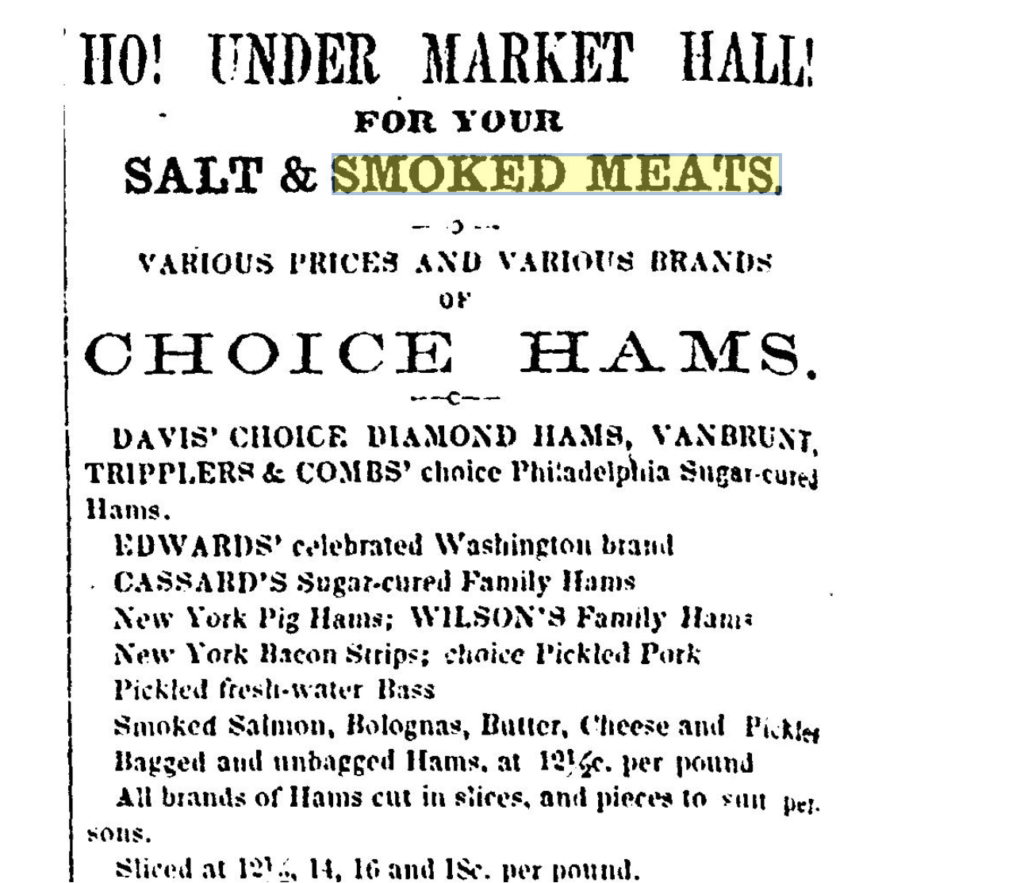
Everyone has their favorite sauces, which originated in different parts of the state. The Midlands or Peedee region is known for its mustard base, the Upstate for a thick, sweet tomato-based variety, and along the coast, a vinegar and pepper sauce prevails. Pork is the most common meat in South Carolina, which can be pulled, shredded, chopped, or even sliced. The sauces are used for brushing or basting the meat while it cooks, and for dipping while eating.
Early Pioneers of the BQQ restaurant business:
The Bessinger family remain at the helm of the two longest operating BBQ establishments in the Lowcountry serving loyal local customers since 1939: Bessinger’s on Savannah Highway and Melvin’s (locations in Mount Pleasant and James Island.) Melvin Bessinger popularized the legendary mustard-based barbecue sauce, which he learned to make at age 10 in Orangeburg, that is now known as a South Carolina classic. He opened Holly Hill Café in 1939, then replaced it with “Eat at Joe’s” after returning from service in World War Two. Next, he and his brother Thomas relocated to Charleston to open Piggy Park Drive-In (now Bessinger’s) on Savannah Highway (their older brother operated Piggie Park on Dorchester Road.) Thomas stayed at the helm of Bessinger’s, while Melvin branched out to start his own namesake restaurant in Mount Pleasant.
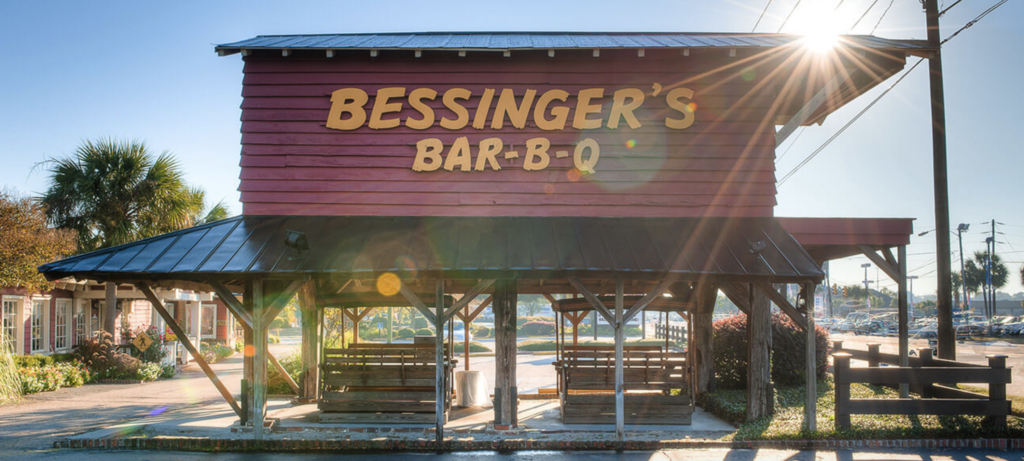
Bessinger’s is billed as “a landmark no-frills barbecue joint serving meat slow-cooked in a woodfire pit and a weekend buffet.” Guests have a tantalizing large menu to pick from in a “warm, friendly, and relaxed atmosphere” reminiscent of an old southern diner: Brisket, pulled chicken, burger baskets with onion rings, green beans, hash over rice, fried okra, collards, and pork skins for sides. Wash it down with sweet tea or soda with cherry or vanilla added. They also offer their bulk meats and sauces to go. The beef hash and rice is a Lowcountry classic now only offered at a few old-time restaurants.
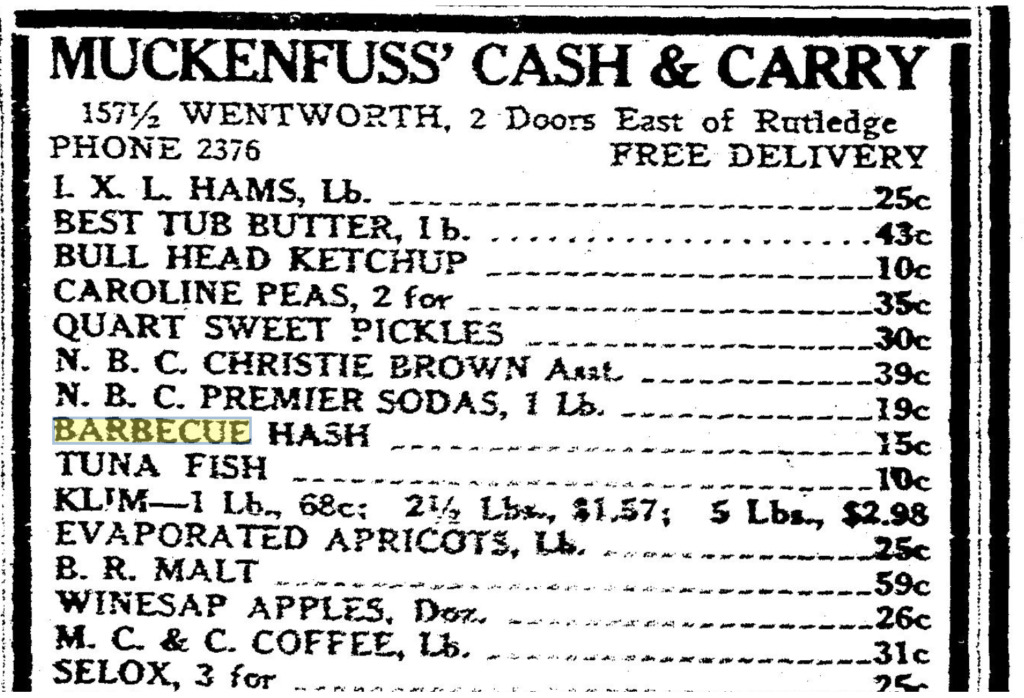
Melvin’s draws crowds for its BBQ pork sandwiches and baskets, served proudly since 1961. The offer milkshakes, cornbread, sweet potato souffle, baby butter beans, and traditional southern bottled soda like Nehi Grape and RC Cola.
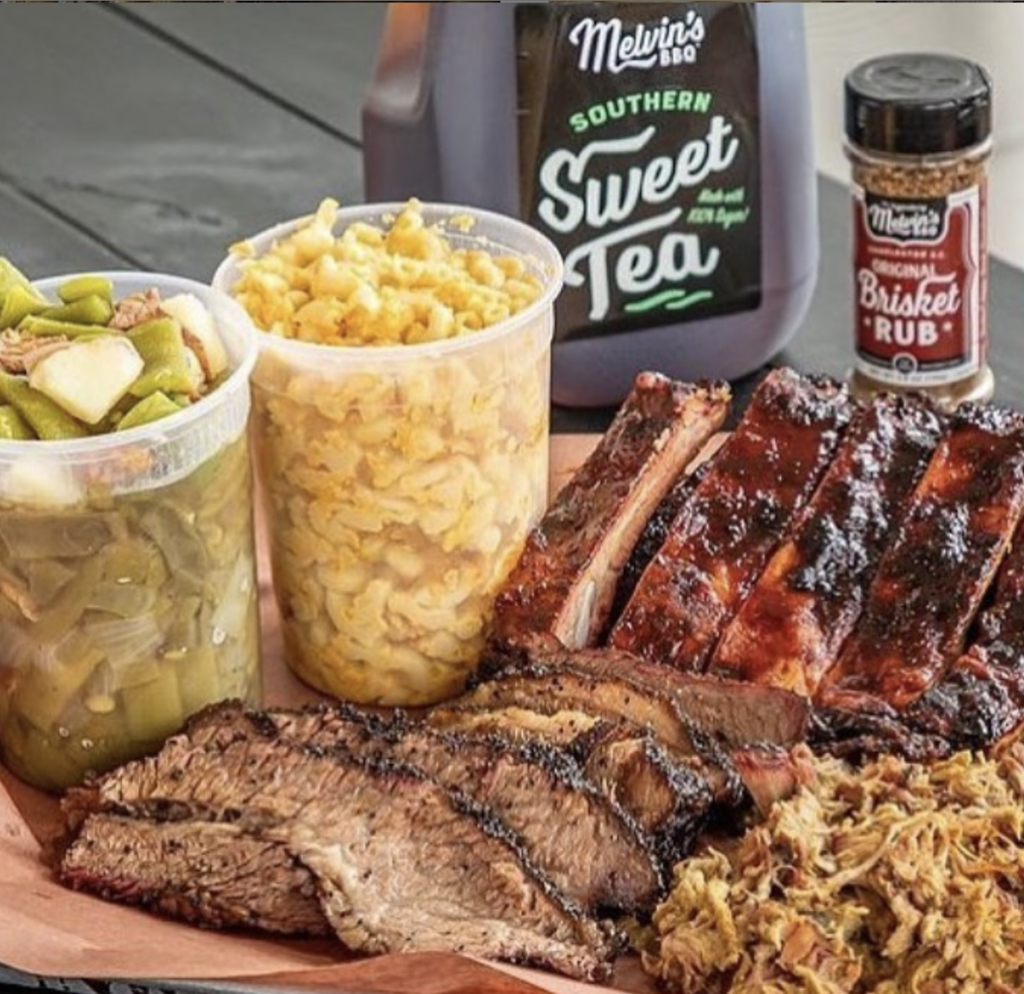
Dukes Barbeque opened in 1955 and now has several family-owned locations from Orangeburg to Folly Road to Walterboro (one of the earliest, which still offers a traditional all you can eat buffet). The no-frills restaurants are featured on several BBQ trail road trip itineraries, and they’re known for their thick, sweet, ketchup-based sauce. Like Bessinger’s and Melvin’s, the Duke’s family friendly traditional restaurants do not serve alcoholic beverages.
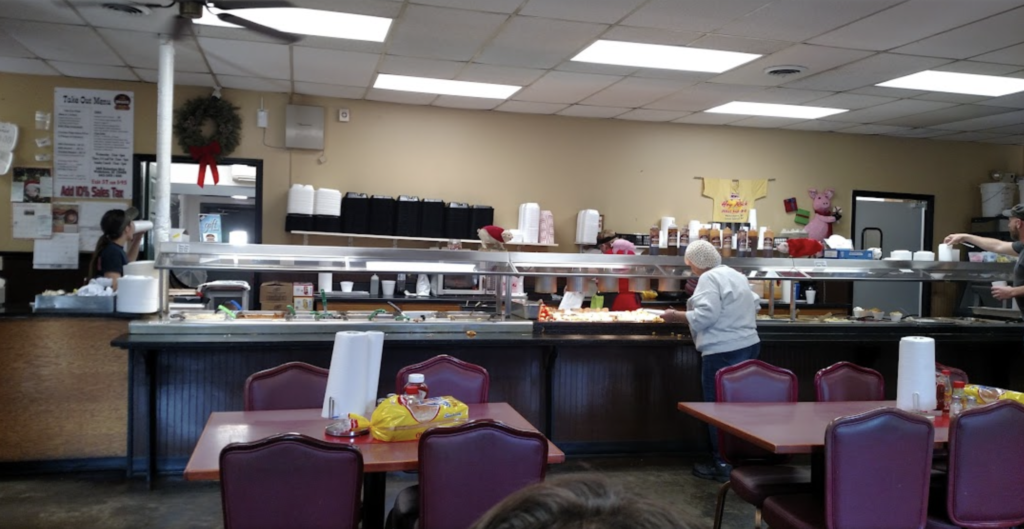
BBQ Renaissance:
Since the early 2010s, a host of new barbecue restaurants have opened in Charleston, several on the up-and-coming Neck/NoMo area. Many modern restaurants have moved to gas or electric cookers, but most Lowcountry BBQ pit masters still use the traditional slow, wood smoked methods. Lewis Barbecue, piloted by Texas native pit master John Lewis, on North Nassau Street, prides itself on using custom designed wood smokers for its beef brisket, ribs, pork, and ox tail. An insider friend who specializes in charcuterie and sausage making at Lewis confirms that their signature dish, “Texas hot guts” sausage, uses traditional gut sausage casings and a secret blend of spices. The menu offerings also include meat sandwiches, sides of pinto beans, slaw, potato salad, green chile corn pudding, collards, fries, and mac and cheese. Dessert choices are classic banana pudding or ‘chocolate dirt’ pie.
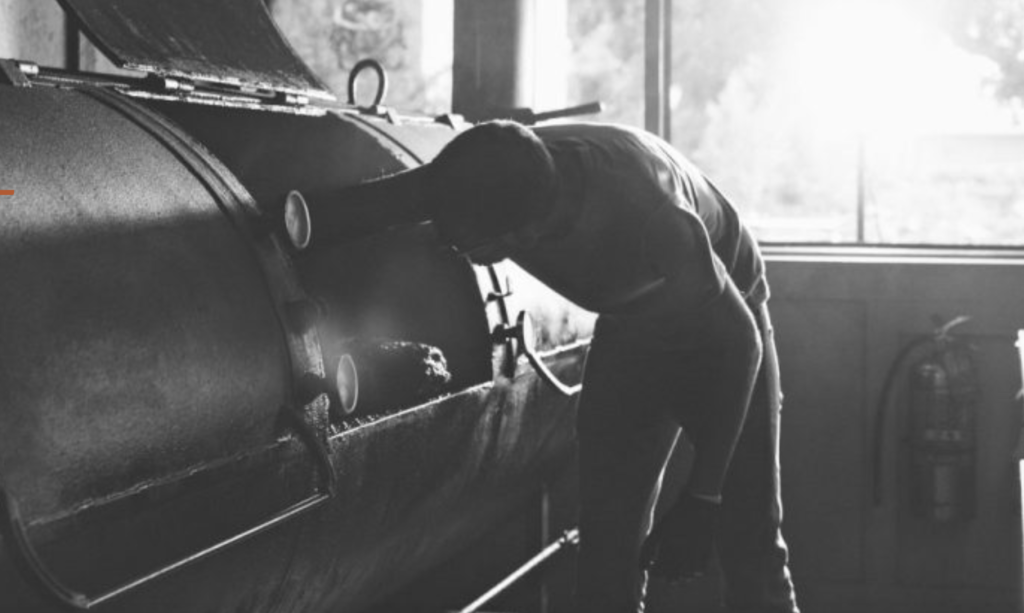
Hometeam BBQ (several locations including one the Neck on Williman Street) is known for its welcoming covered patio area, full-service bar, and extensive beer list to accompany their popular barbecue which diners can top with several sauces at the table. They also have BBQ tacos, half chicken plates, BBQ sliders and nachos, and rack ribs.

Award-winning and nationally renowned Rodney Scott’s Barbecue is a Black owned restaurant at 1011 King Street that draws crowds from all over the country after being featured on Anthony Bourdain and “Chef’s Table” on Netflix. Scott is a James Beard Award winning chef who has been grilling since he was 11 (his family has been in the BBQ business for over forty years.) The restaurant, which opened in 2017, is a partnership between Scott and Nick Pihakis who both believe in the traditions of “whole hog” barbeque and the importance of using hardwood for the smoking process. They offer pig skins, hushpuppies, loaded baked potatoes, and chicken wing appetizers, southern fried catfish, apple pie and banana pudding, and the staples- pork, chicken, turkey, briskets, and ribs as a plate or sandwich.
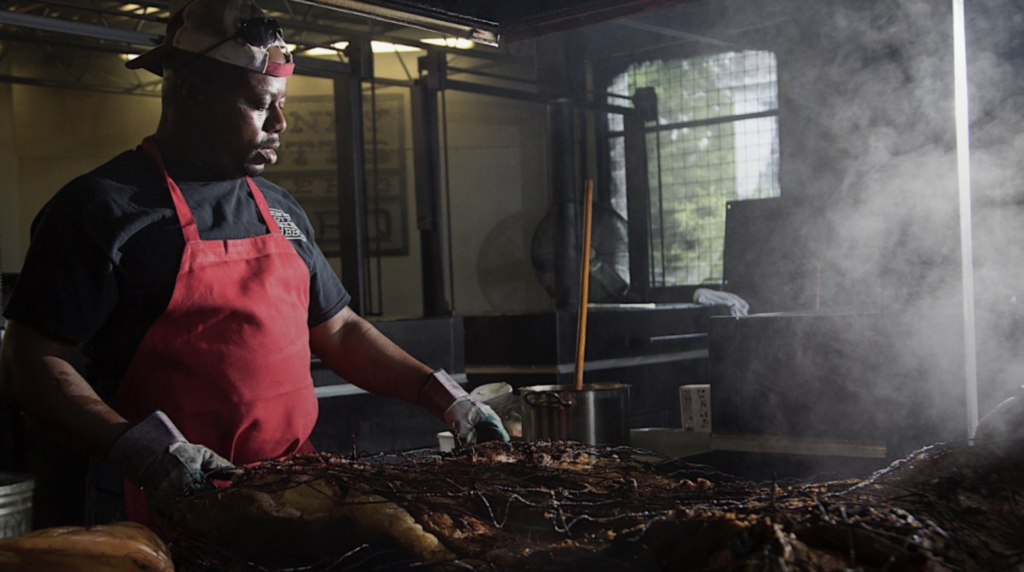
Poogan’s Smokehouse at 188 East Bay is a fancier take, in keeping with the Poogan’s Porch brand, trading Formica tables and paper plates for a slightly more formal sit down experience. Their cornbread and mac and cheese are served up in a personal cast iron skillet. Along with the standard fare, Poogan’s ads a few southern custom dishes like a southern Reuben sandwich and key lime pie for dessert.
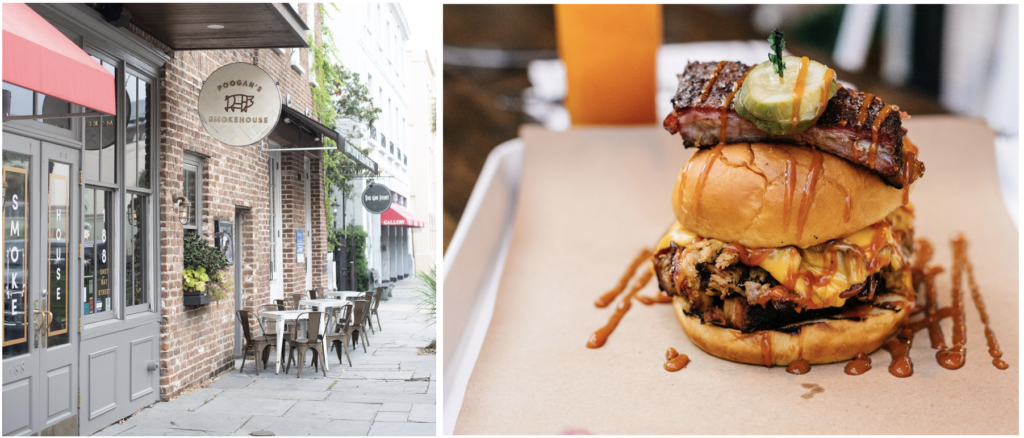
With locations in West Ashley, Summerville, and Mount Pleasant, Swig & Swine is a trendy choice that’s popular for its outdoor seating and bourbon and beer list as well as its food. Barbequed meats come as sandwiches, plates with sides, or a well-proportioned family platter. They offer Brunswick stew (an Irish classic), grits and vinegar slaw in addition to common sides, and a fresh fruit cobbler for dessert. They also have a food truck, to bring tasty barbecue to outdoor venues and special events throughout the Lowcountry.
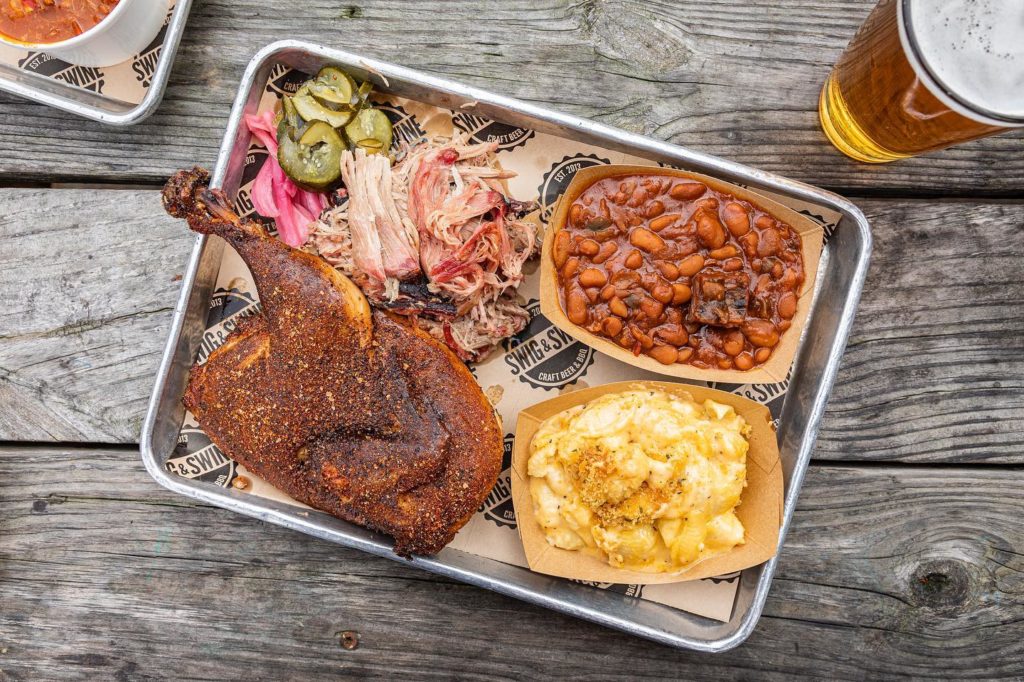
Sources:
- https://www.rodneyscottsbbq.com/menu/
- https://lewisbarbecue.com
- https://hometeambbq.com
- https://swigandswinebbq.com
- https://melvinsbbq.com
- https://www.pooganssmokehouse.com
- https://www.bessingersbbq.com
- Historic newspapers (Charleston Courier, News and Courier, City Gazette)
- Lake E. High. A History of South Carolina Barbecue. Charleston: History Press, 2013.
- South Carolina Encyclopedia. “Barbecue.” https://www.scencyclopedia.org/sce/entries/barbecue/
- Egerton, John. Southern Food: At Home, on the Road, in History. New York: Knopf, 1987.
- https://www.reuters.com/article/uk-food-barbecue-southern/preserving-the-american-souths-slow-cooked-wood-barbecue-idUSLNE86U00Z20120731
- Robert F. Moss. Barbecue: The history of an American Institution. Auburn: University of Alabama Press, 2010.
- https://discoversouthcarolina.com/barbecue
- https://www.greatbritishchefs.com/features/south-carolina-barbecue
- Sarah Rutledge. The Carolina Housewife (First Cookbooks of America.) originally published in 1847.


